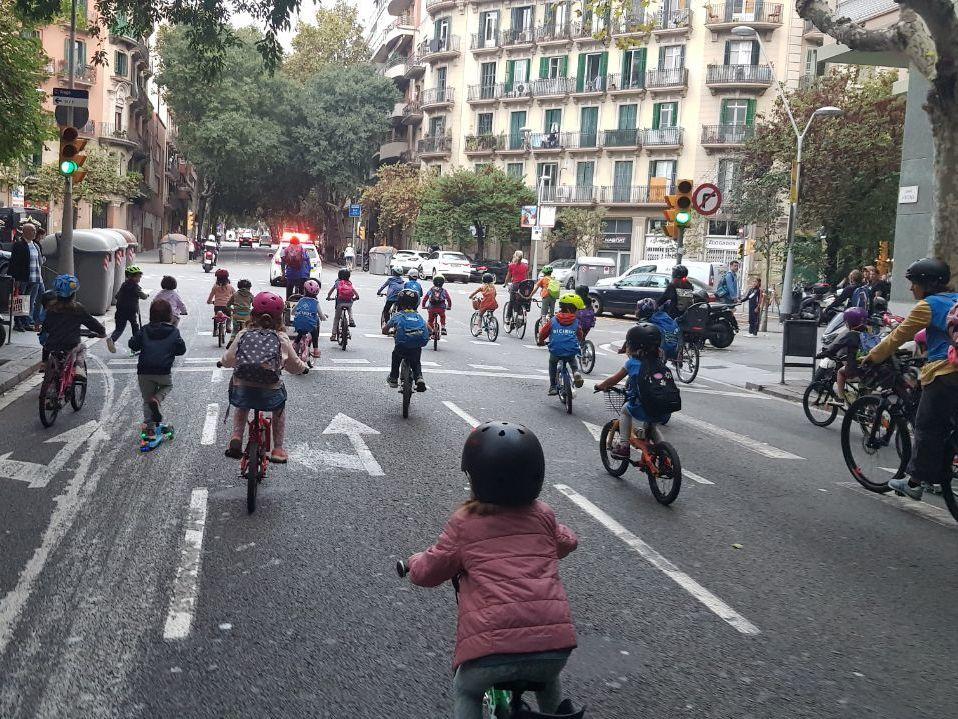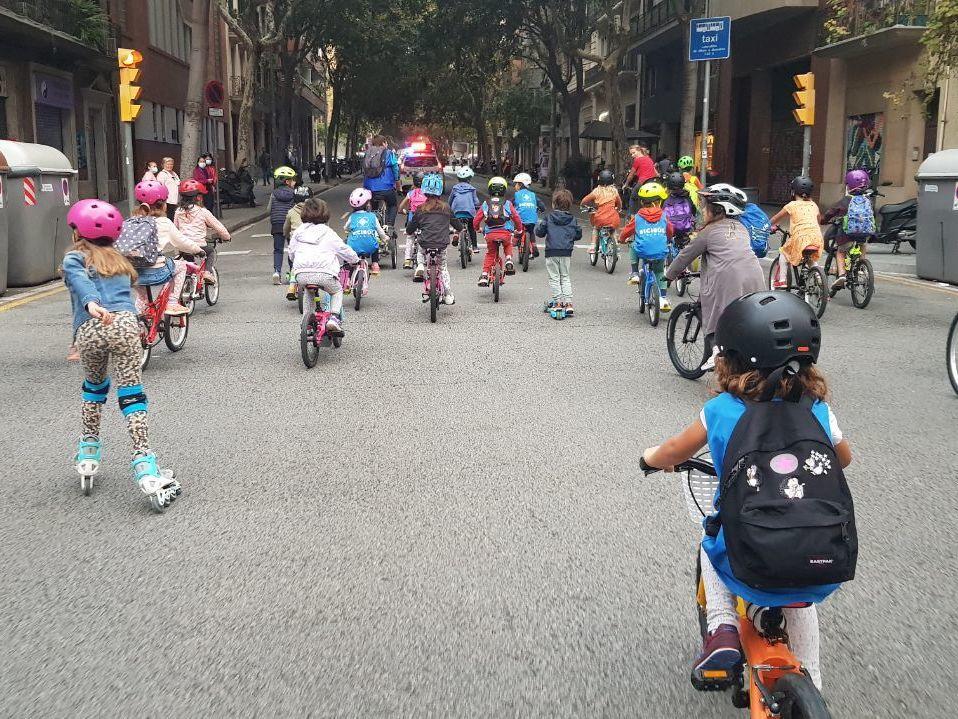Section Branding
Header Content
Hundreds of kids and their families are riding a 'bicycle bus' to school in Barcelona
Primary Content
The Friday commute to school looks a little different for some kids in Barcelona, Spain.
Starting at 8 a.m., more than a hundred kids and parents hop on their bikes and hit the road on their way to school and work. Not on the sidewalk or in a bike lane, but in the middle of the street.
Dozens of children ride bikes and scooters — and even skate — down empty streets, seen in videos and photos posted to social media.
The system has been dubbed bicibús, or bike bus, and began in the Eixample district of Barcelona in September.
Families in the area are using the growing popularity of the bike commute to build community — and also fight for a safer, more environmentally friendly way for their kids to get to school.
"It all started with a group of five families, a lot of determination and a deep sense of the greater good," Mireia Boix, a parent who rides with her 5-year-old son, told NPR in an email.
Building a healthier city
The bicibús operates similar to the way a school bus would but with three "stops" along the way where more riders join as it travels to several schools in the Eixample.
Parents often join in, some of them carrying younger children on their bikes. Police vehicles have started to escort the group, with officers traveling in the front, back and on the sides of the group, Boix said.
In Eixample, the bicibús travels down Entença Street, where three schools are located; the ride from start to finish lasts about 25 minutes. Boix said it's a busy road where about 20,000 vehicles drive through every day. It makes the surrounding area loud and busy. And for kids getting to school, it can be dangerous. Boix said with the bicibús, she feels a sense of relief when her son bikes to school on Fridays because she knows he'll be safe.
That's why parents in the community are hoping for a school-friendly bike lane that is separated from the main traffic that would allow children to bike with their families. This kind of lane already exists in other parts of Barcelona, Boix said.
Boix says the city council has made some changes to make the street safer, but it hasn't made much of an impact.
"It would reduce the amount of cars and it would make bike riding a possibility for families that right now are not too sure and feel insecure with the area," she said.
"Bicycles are a means of transportation and if a 5-year-old can ride a bike to school it means that every one else could. If the population uses their bikes, there will be a healthier, quieter and overall better city to live in," Boix said.
Other neighborhoods in Barcelona and other parts of Spain have similar bicibus traditions, as well.
A sense of camaraderie and companionship
Boix said she finds herself waking up earlier than usual every Friday out of excitement for the ride. She and her son ride their bikes to school in the morning most days. On the day of the bicibús, she said, he "enjoys the ride and the freedom."
The joy, even just watching videos on social media, is infectious. Bystanders stop and take pictures of the group. Some of the children even sport bicibús jerseys. Some on social media have commented on how the bicibús shows what it means to rethink public space.
Boix said the camaraderie and companionship that have come with organizing and taking part in the rides becomes a little emotional, too.
"We have all felt emotional in one of the rides at some point. It is a group of people convinced that things can be done a bit differently," she said. "That we are not asking for something strange or impossible."
Copyright 2021 NPR. To see more, visit https://www.npr.org.


